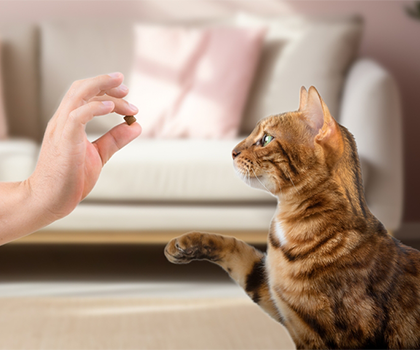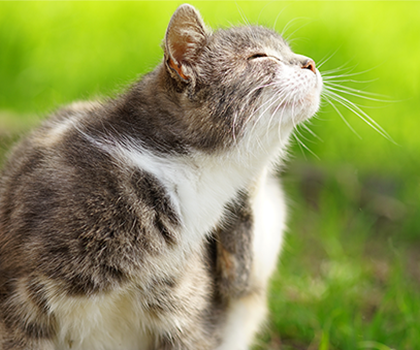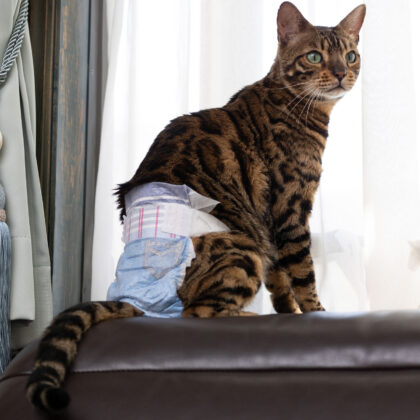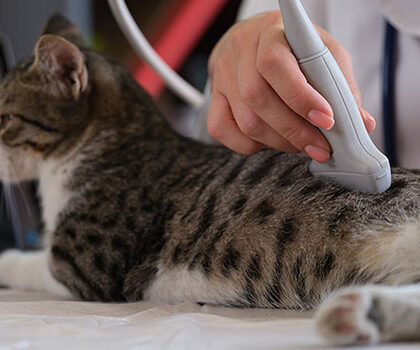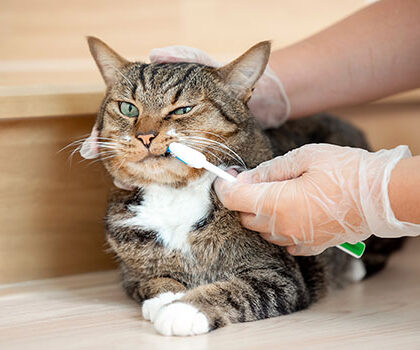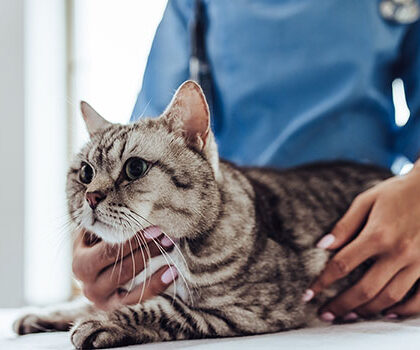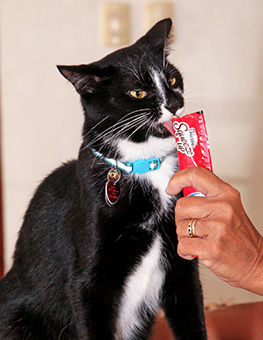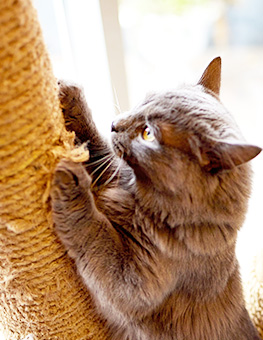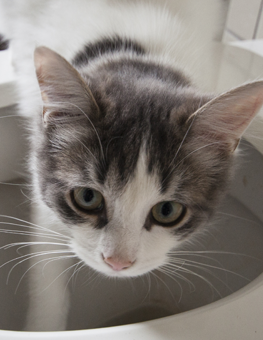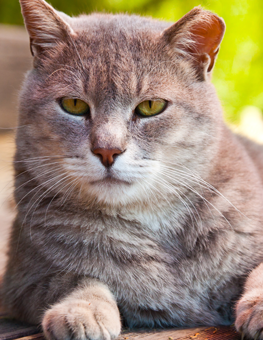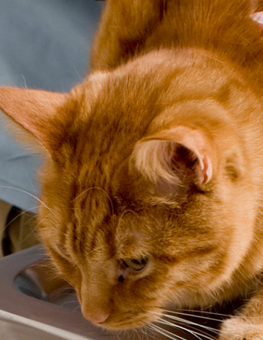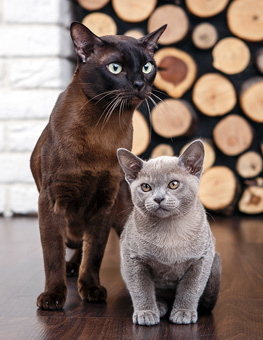Keeping Your Home Odor Free
Regular litter box maintenance and careful clean-up can keep your house smelling fresh.
No one likes a home that smells of cat odor. Cat odor can come from a variety of places: litter boxes, cat urine and feces. Each can be managed effectively with a little attention.
Litter Boxes
The simplest solution for a smelly litter box is to move it to an area where people are less likely to smell it. Moving, however, is not always a viable solution for many cats or cat-owners. So, what are your options?
- Use the right cat litter. There are dozens of brands of kitty litter for sale today. Litter can be made from corn, wheat, clay, crystals, synthetics, paper, wood, or other materials. Generally, litter that clumps does a better job of trapping odor than litter that does not clump and there are several with odor reducing agents or masking perfumes. Try a few to see which works best for your situation and for your cat. Some cats prefer a specific type of littler (clumping vs. non) or do not like heavily scented litters. Changing a litter too quickly may cause litter box avoidance so be sure to have a second box out so that you can see if there is a preference between the litters.
- Clean the litter box frequently. In general, if your cat’s litter box smells, then it needs to be cleaned more frequently. A good goal should be to clean the litter box at least once (if not twice) daily. This will help the litter from holding on to odors (even clumping litter).
- Use a covered box. Covered litter boxes do a better job at concealing odor than uncovered ones. Some litter boxes even offer air filtration and freshening systems. Keep in mind, though, that most of the odors are trapped under the lid where the cat needs to enter. Even with a covered litter box, scoop the litter once daily.
- Change diets. Sometimes, a change in your cat’s diet can help mitigate odors. For example, your cat may not be digesting his current diet well if it is higher in fiber and a change in diet can help alleviate this.
Cat Urine
A kitten as young as three weeks of age will begin to use the litter box regularly as this is an instinctive behavior. However, there are reasons that a cat would stop using the litter box – it might not clean enough or there are new stresses in the cat’s life. Another very common reason for cats to lose their litter box training is for medical issues (urinary tract infection, kidney disease, diabetes, etc.) so a trip to your veterinarian would be a great place to start. Should your cat have a lapse in litter box habits, there are a few steps that you can take to eliminate the odor from inappropriate elimination.
- Clean the stain quickly and thoroughly. Urine will not seep into the fabric or a rug if attended to promptly. In addition, cats are more likely to urinate repeatedly in one location if the smell remains. You should blot up as much of the liquid as possible if on fabric and use mild soap and water to initially clean the spot. A black light can be used to find errant urine.
- Use a dedicated odor remover. There are several types of odor removers that work differently. Some contain masking perfumes to cover the odor, some contain enzymes to break down the urine, and, lastly, some products actually surround the odor molecule and eliminate it. Be sure to follow the manufacturer’s instructions. Whatever the product, it is important to use enough of it to saturate the area – remember that much of the urine in carpets may reside in the carpet pad.
Defecation and Vomit
Cat droppings left on a rug or floor are not just unsightly; they smell and can easily stain or damage a rug. Clean up the initial droppings using paper towels, but be sure not to rub any residue into the fabric. Follow that up with a light mixture of soap and water. Droppings that are firm and consistent generally clean up easily.
Diarrhea, on the other hand, can be much more difficult to clean because of the high water content. Clean up what you can with paper towels, and then use a light detergent and water. Unlike firmer feces, you may have to use a stain and odor remover to thoroughly clean and remove the smell completely.
Vomit should be cleaned similar to diarrhea, with one exception. Some cat foods contain dye, which can result in a stain on your rug. If your carpet is stained, products formulated to treat this specific type of dye are available to remove the damage. If your cat is vomiting often, a trip to your veterinarian is in order as this can be a sign of illness.
Removing Cat Urine from Clothing
If your cat urinates on clothing left on the floor or in laundry baskets, common laundry detergent is enough to remove the scent. Sometimes, a presoaking cycle and an extra rinse is helpful but do not use hot water as this could make matters worse. Here are some tips to treat machine washable items:
- Soak in cold water before laundering. The cold water will help break apart the urine prior to washing.
- Add a small amount of vinegar. The acid from the vinegar will draw out the odor.
- Use a laundry detergent made specially to combat odor. These are often made specifically to remove tough odors.



